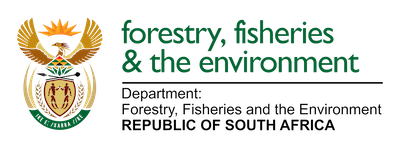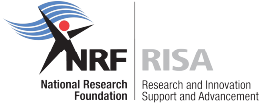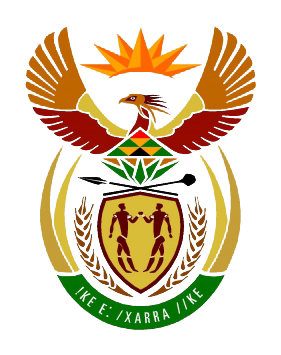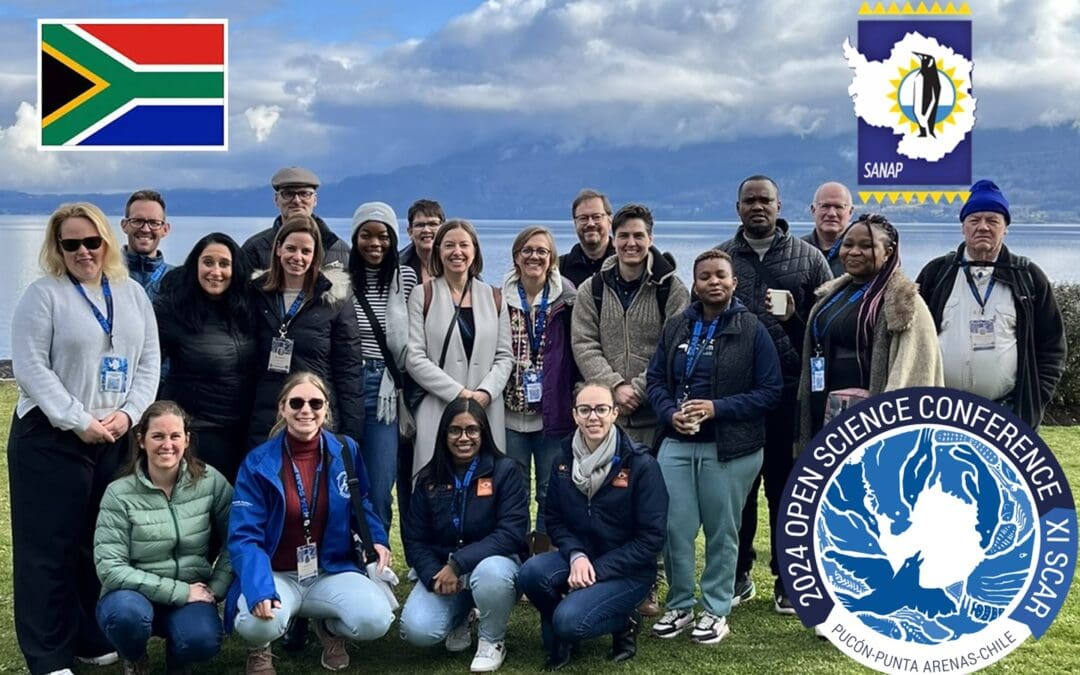
by Ria Olivier | Oct 8, 2024 | Antarctica, Research, SANAP, SANAP Student, SCAR
A dive into the latest research and activities within the Scientific and Antarctic Research community during the biannual conference in Chile.
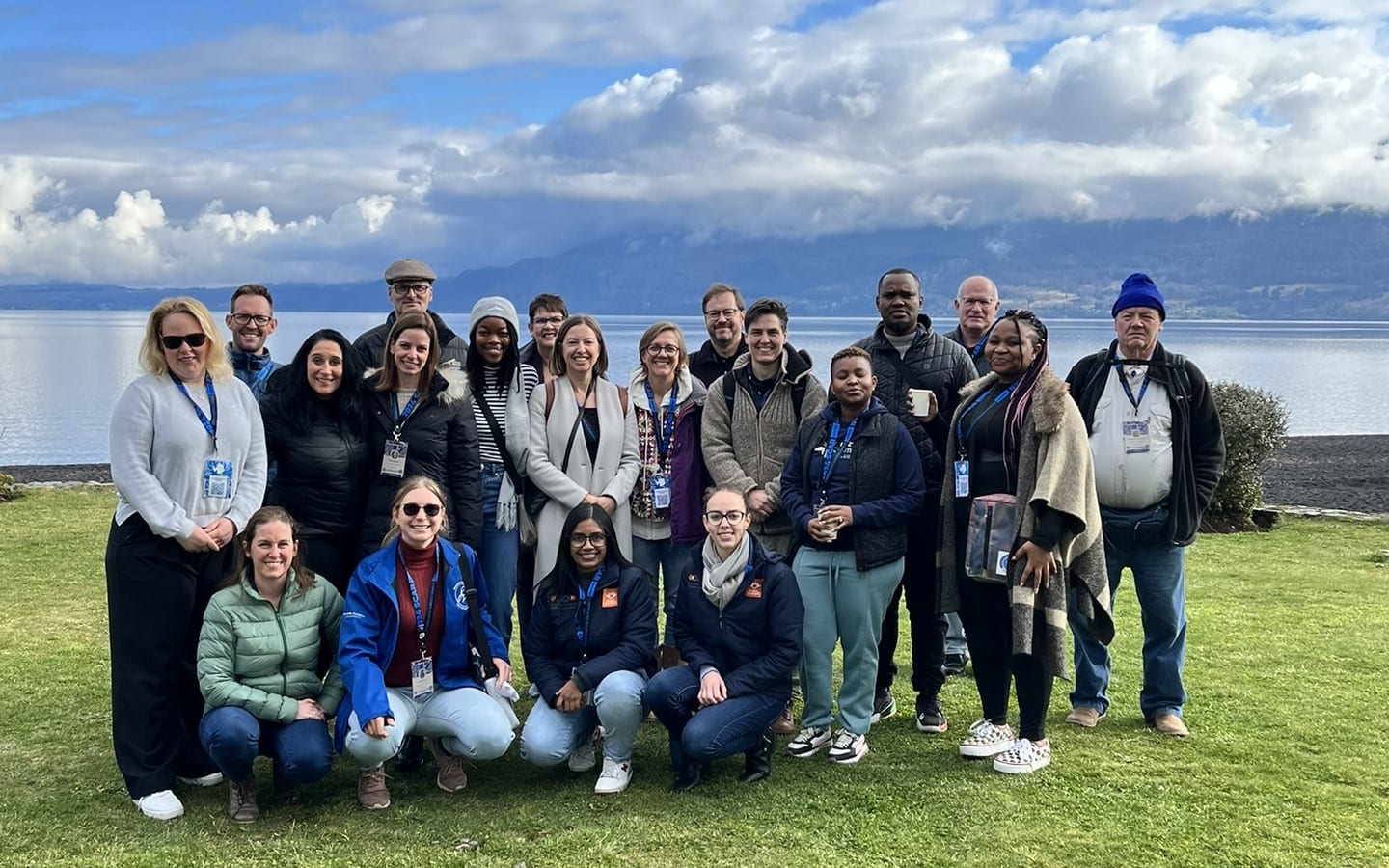
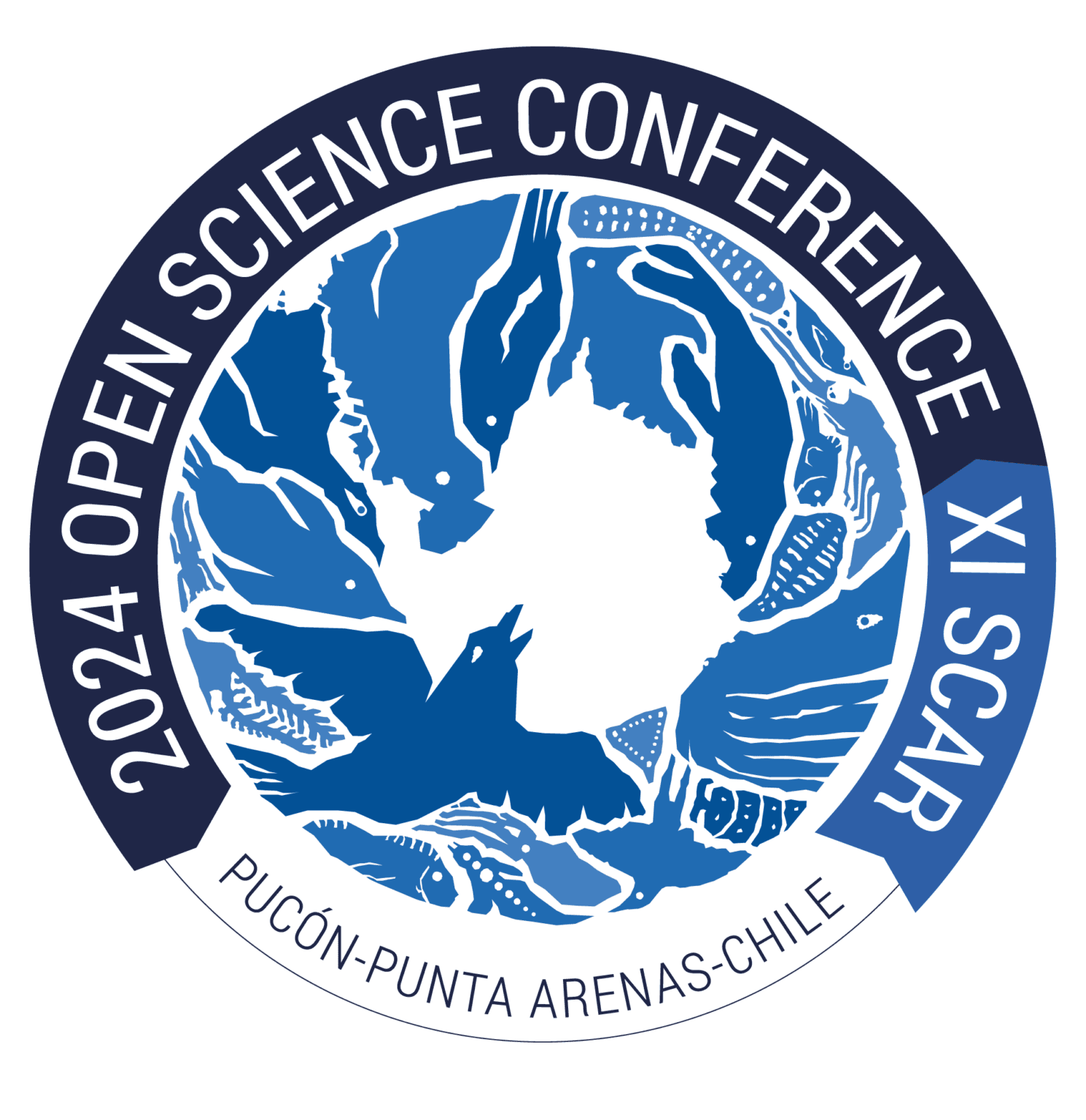 In today’s rapidly evolving scientific landscape, research conferences serve as vital hubs for knowledge exchange, fostering innovation, and building collaborations across disciplines. The recent SCAR conference held in Pucon, Chile during August brought together leading scholars and emerging researchers from around the globe. The event was packed with groundbreaking presentations, hands-on workshops, and insightful discussions that highlighted the latest trends shaping the future of research.
In today’s rapidly evolving scientific landscape, research conferences serve as vital hubs for knowledge exchange, fostering innovation, and building collaborations across disciplines. The recent SCAR conference held in Pucon, Chile during August brought together leading scholars and emerging researchers from around the globe. The event was packed with groundbreaking presentations, hands-on workshops, and insightful discussions that highlighted the latest trends shaping the future of research.
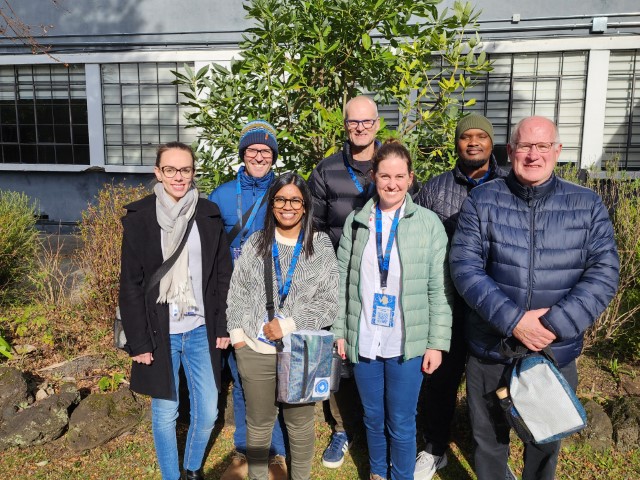 Here’s a closer look at the highlights and takeaways from this year’s conference. (above: Session on sub-Antarctic was an all South African session)
Here’s a closer look at the highlights and takeaways from this year’s conference. (above: Session on sub-Antarctic was an all South African session)
Plenary Lectures and Mini Symposia: The conference had a series of plenary lecture from some of the most respected minds in academia. Dr Victoria Nuviala from Madrid Institute for Advanced Study (MIAS), shared insights into An Architectural Biography of Antarctica. The reckoning: how #MeTooAntarctica is changing fieldwork a presentation by Dr Meredith Nash
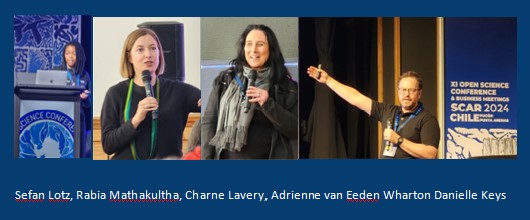 Groundbreaking Research Papers. One of the conference’s core components was the presentation by researchers during the different parallel sessions. Each session provided opportunity for Q&A, enabling in-depth conversations between the audience and the researchers, fostering a true sense of intellectual community. South African researchers presented during these sessions. (above a few presenters captured during their present picture above: Session on sub-Antarctic was an all South African sessions)
Groundbreaking Research Papers. One of the conference’s core components was the presentation by researchers during the different parallel sessions. Each session provided opportunity for Q&A, enabling in-depth conversations between the audience and the researchers, fostering a true sense of intellectual community. South African researchers presented during these sessions. (above a few presenters captured during their present picture above: Session on sub-Antarctic was an all South African sessions)
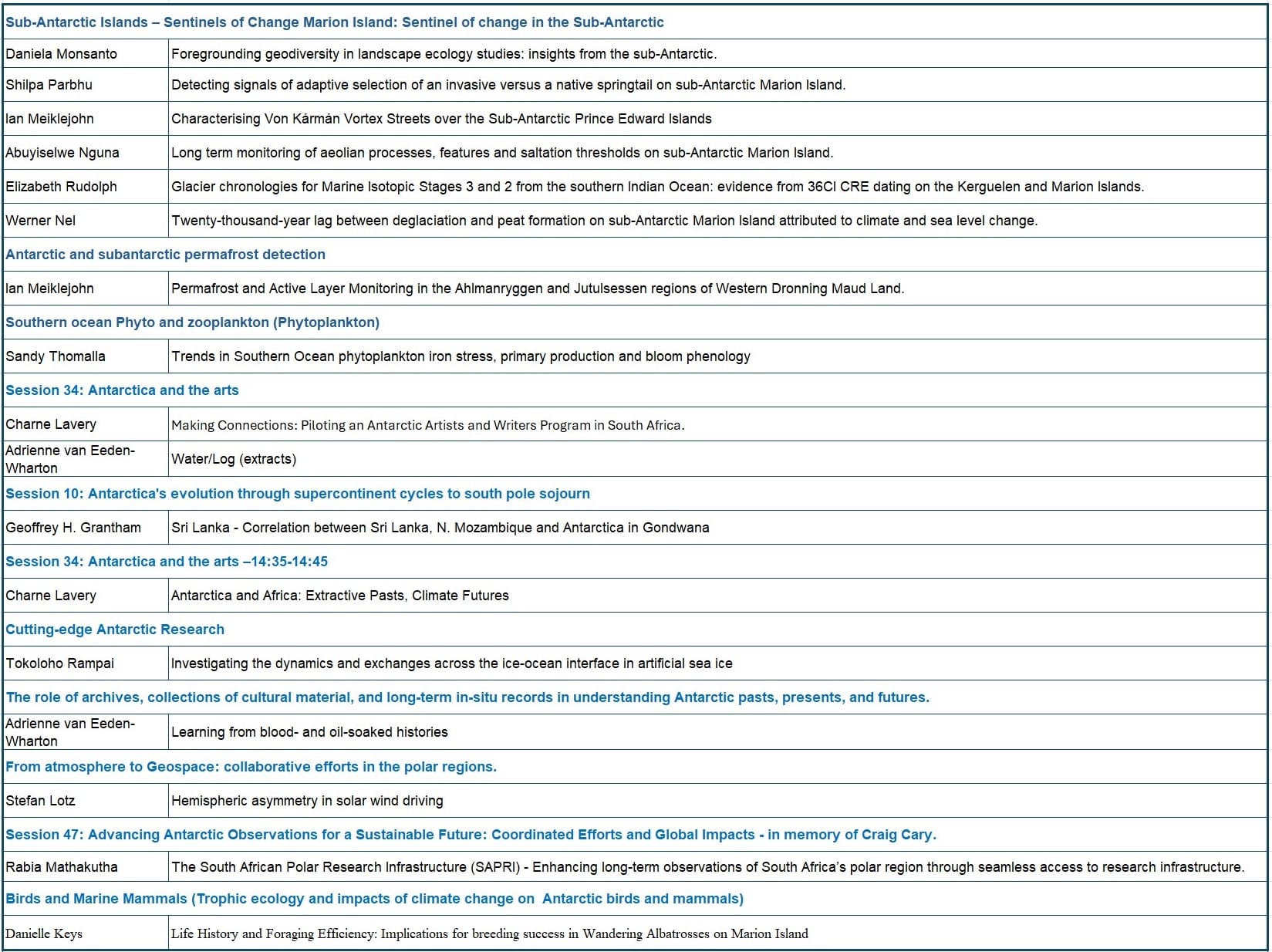 Workshops. Experts from organizations guided participants through various disciplines. Ria Olivier held a workshop on publications in the Antarctica Community and resources on data management
Workshops. Experts from organizations guided participants through various disciplines. Ria Olivier held a workshop on publications in the Antarctica Community and resources on data management
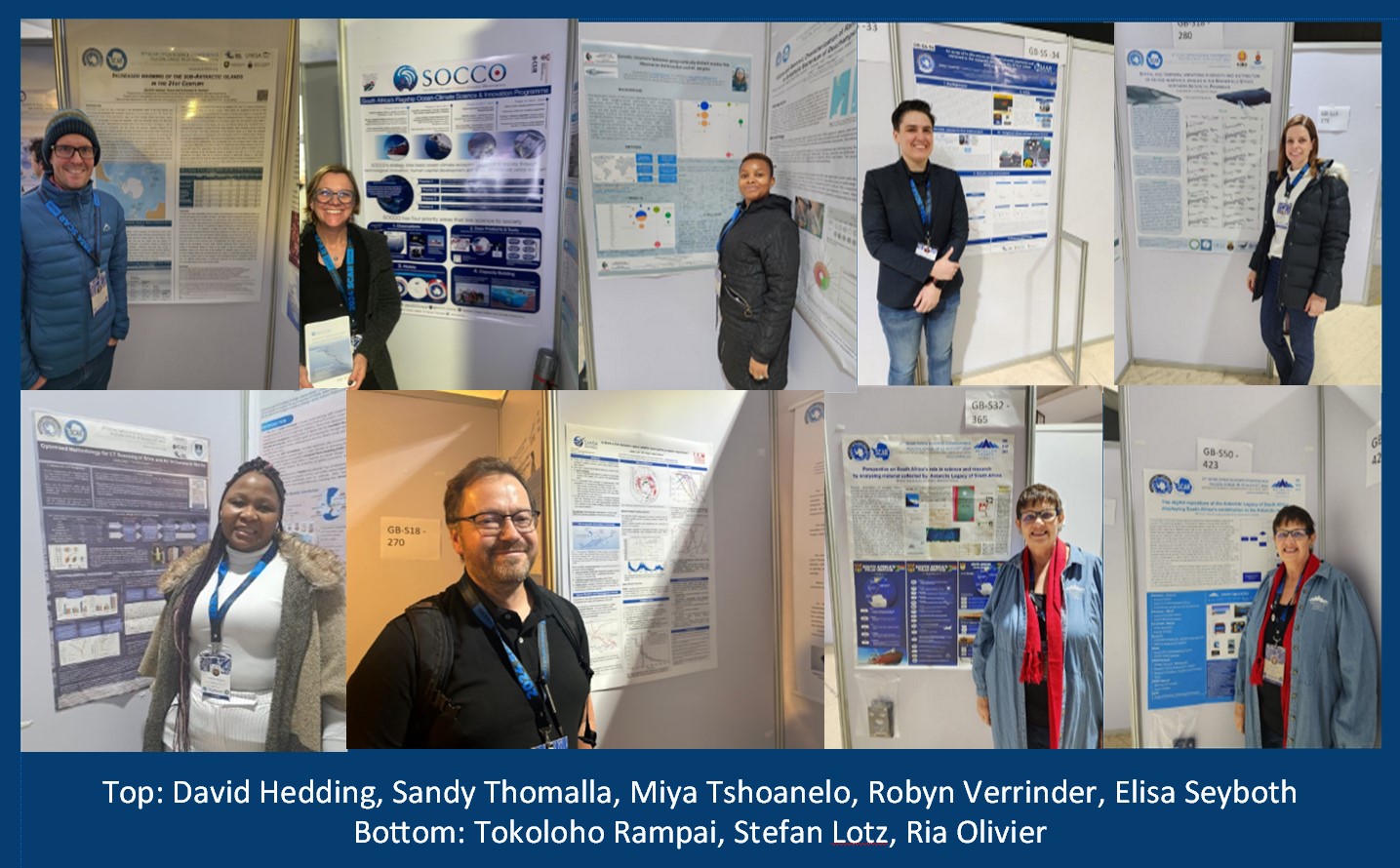 Poster Sessions: Spotlight on Research in addition to formal presentations, these sessions provided a platform for researchers to showcase their work.
Poster Sessions: Spotlight on Research in addition to formal presentations, these sessions provided a platform for researchers to showcase their work.
 Networking and Collaboration. Beyond the formal sessions, the networking opportunities were an integral part of the conference. Through social events, coffee breaks, and an industry exhibition, participants had the chance to connect with peers, potential collaborators, and mentors.
Networking and Collaboration. Beyond the formal sessions, the networking opportunities were an integral part of the conference. Through social events, coffee breaks, and an industry exhibition, participants had the chance to connect with peers, potential collaborators, and mentors.
NEXT SCAR in Norway in 2026! !
Conclusion – SCAR2024 was a celebration of innovation, collaboration, and cutting-edge research. It provided a rich platform for learning, networking, and exchanging ideas that will shape the future of research. For attendees, the event was not only an opportunity to showcase their work but also a reminder of the collaborative spirit that drives scientific progress. As we look forward to next conference, it’s clear that the future holds exciting developments in Antarctic Research, and conferences like this one will continue to play a crucial role in fostering those advancements.
Activities during SCAR2024
Oral & Poster Presentations
by Ria Olivier | Aug 28, 2024 | Research, SCAR, Uncategorised
 Well done to all that represented South Africa at XIth SCAR – Open Science Conference & Biennial Meetings in Pucón-Punta Arenas – CHILE during
Well done to all that represented South Africa at XIth SCAR – Open Science Conference & Biennial Meetings in Pucón-Punta Arenas – CHILE during
August 2024.
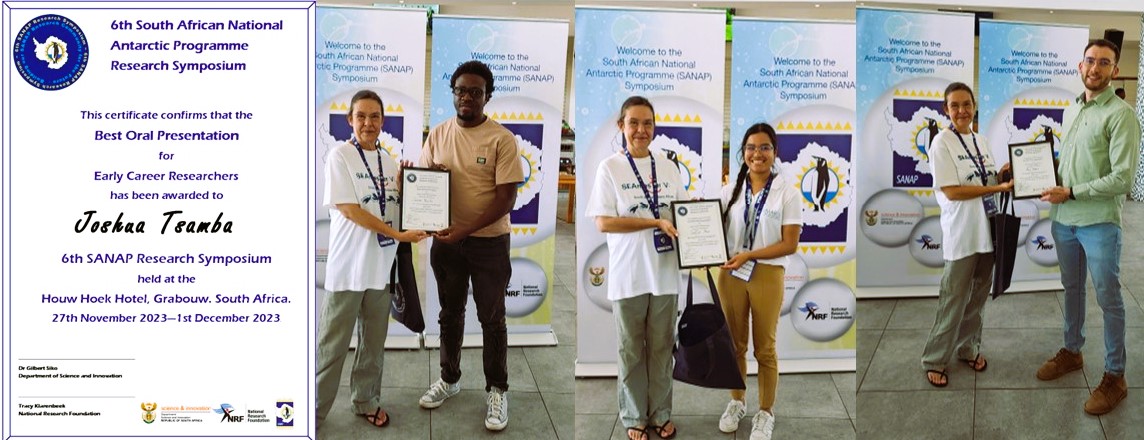

More posts to follow
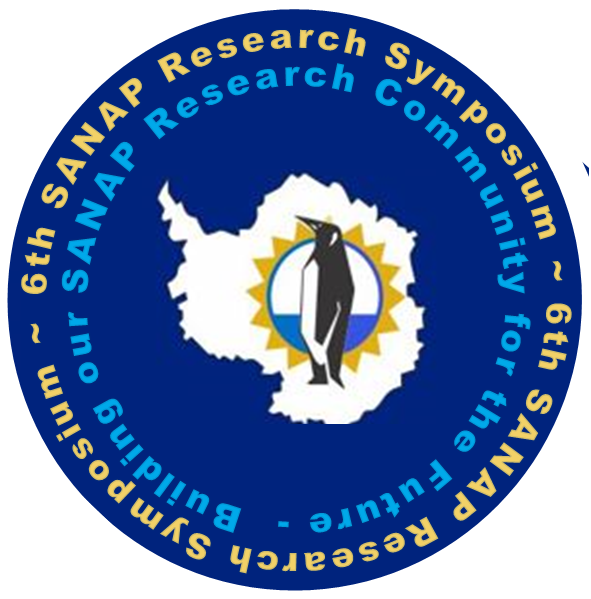
by Ria Olivier | Dec 12, 2023 | International Days, Research, SA Polar Research Infrastructure, SANAP, SANAP Student, SAPRI, SCAR, Science, SEAmester
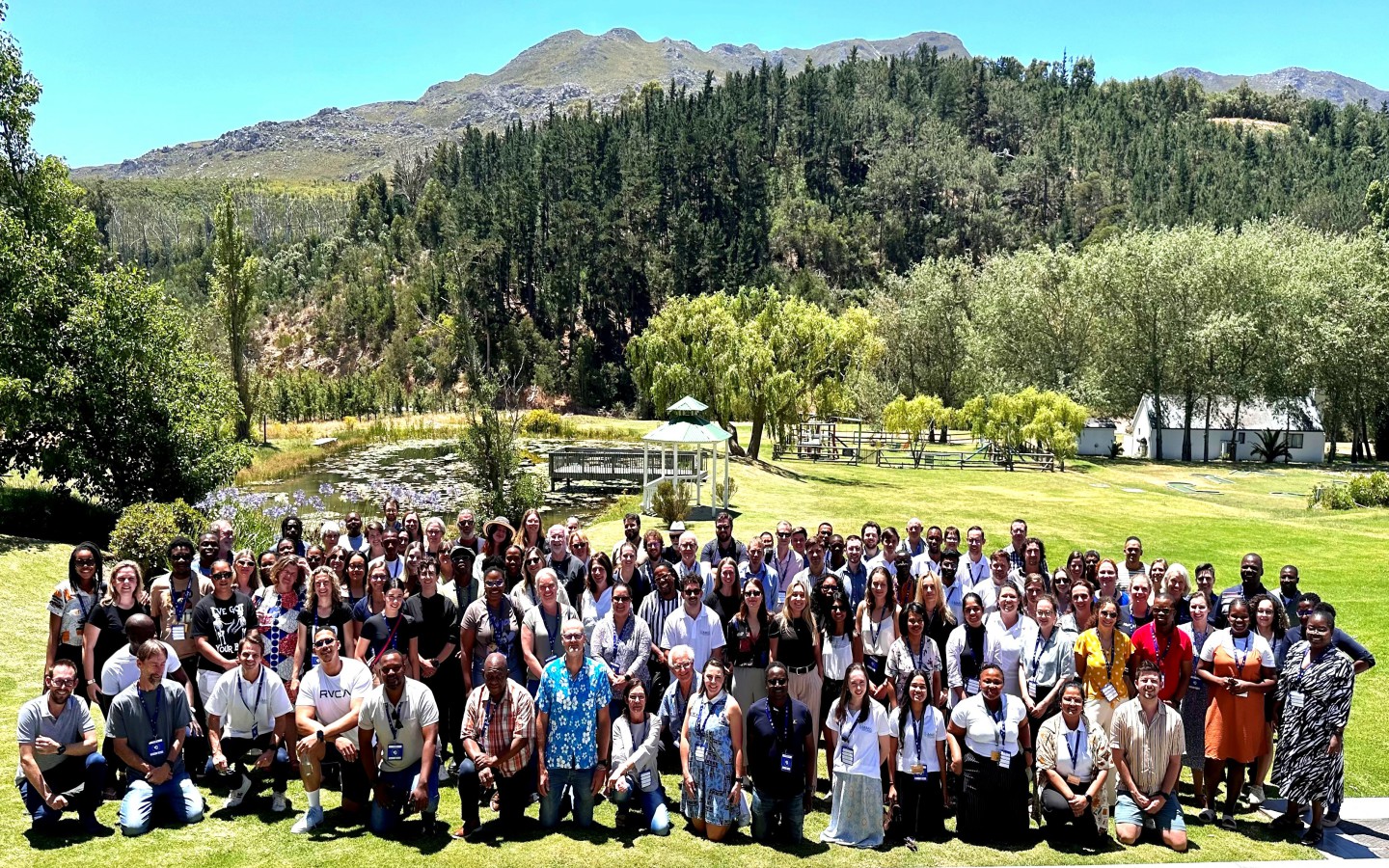 Over a period of 5 days 172 people participate in the 6th SANAP symposium. A lot has happened in the past 4 years since the last symposium in Hermanus in 2018 and feedback on research and other activities within SANAP featured on the program. The symposium was hosted by Stellenbosch University at Houw Hoek Hotel in the Grabouw valley where the participants built on a SANAP Research community for the future.
Over a period of 5 days 172 people participate in the 6th SANAP symposium. A lot has happened in the past 4 years since the last symposium in Hermanus in 2018 and feedback on research and other activities within SANAP featured on the program. The symposium was hosted by Stellenbosch University at Houw Hoek Hotel in the Grabouw valley where the participants built on a SANAP Research community for the future.
The Symposium kicked off with a hybrid meeting of the South African national committee for SCAR and the first evening a keynote lecture was presented by Prof Jukka Tukhuri (Aalto University, Finland) on the discovery of Shackleton’s Endurance on a voyage of the SA Agulhas II. During the symposium keynote lectures and plenary talks were given by Dr Peter Convey of British Antarctic Survey, Dr Sue Tonin of Mouse Free Marion and Prof Marcello Vichi on the Polar Lab part of the South African Polar Research Infrastructure (SAPRI).
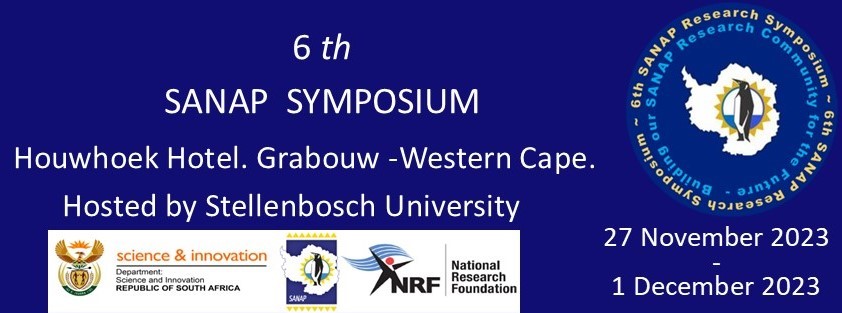 The purpose of the symposium was to facilitate the free exchange of scientific information within SANAP research. In the Marine and Antarctic Research strategy it states that: “The need for coordinated, extensive and targeted research in the marine and oceanic domain has been underlined. Coordination has become important as there has been a shift in marine science from resources and process studies that could be carried out by small groups or individuals to very large-scale regional climate and ecosystem studies, where the success, nooses and benefits lie in the coordination.” One of the strategies outlined is: “creation of a society informed on the value of marine and Antarctic research initiatives.”
The purpose of the symposium was to facilitate the free exchange of scientific information within SANAP research. In the Marine and Antarctic Research strategy it states that: “The need for coordinated, extensive and targeted research in the marine and oceanic domain has been underlined. Coordination has become important as there has been a shift in marine science from resources and process studies that could be carried out by small groups or individuals to very large-scale regional climate and ecosystem studies, where the success, nooses and benefits lie in the coordination.” One of the strategies outlined is: “creation of a society informed on the value of marine and Antarctic research initiatives.”
The following five thematic (vertical) areas were prioritised for research sessions and various principal investigators and researchers within SANAP chaired the sessions:
- Oceans and marine ecosystems under global change – Dr Rampai, Dr Fietz, Dr Thomalla, Dr Nicholson and Dr Lamont
- Earth systems observations – Prof Nel, Dr Lotz
- Ecosystems, biodiversity and biodiscovery – Prof Van Vuuren, Prof Cowan, Dr Greve, Prof Pistorius, Dr Wege,
- Innovation and development – Prof A Bekker
- Human Enterprise – Dr Lavery
Cross-cutting support interventions were discussed such as:
- Coordination and governance by Dr Gilbert Siko and Tracy Klarenbeek
- Human capital development and transformation chaired by Prof Ansorge
- Public awareness and engagement chaired by A Louw
- Research Infrastructure and platforms chaired by Dr T Morris
- Data management chaired by Dr Treasure
Feedback from SA National Committee for SCAR, APECSSA, SCALE expeditions and SEAmester were given and an evening session was held by the APECSSA committee where all the early career researchers that attended the symposium had great discussions. The newly established SAPRI was showcased to the SANAP community in cross discipline sessions on research infrastructure and platforms, data management and engagement, and a keynote lecture on the SAPRI Polar Lab that concluded all the research presentations
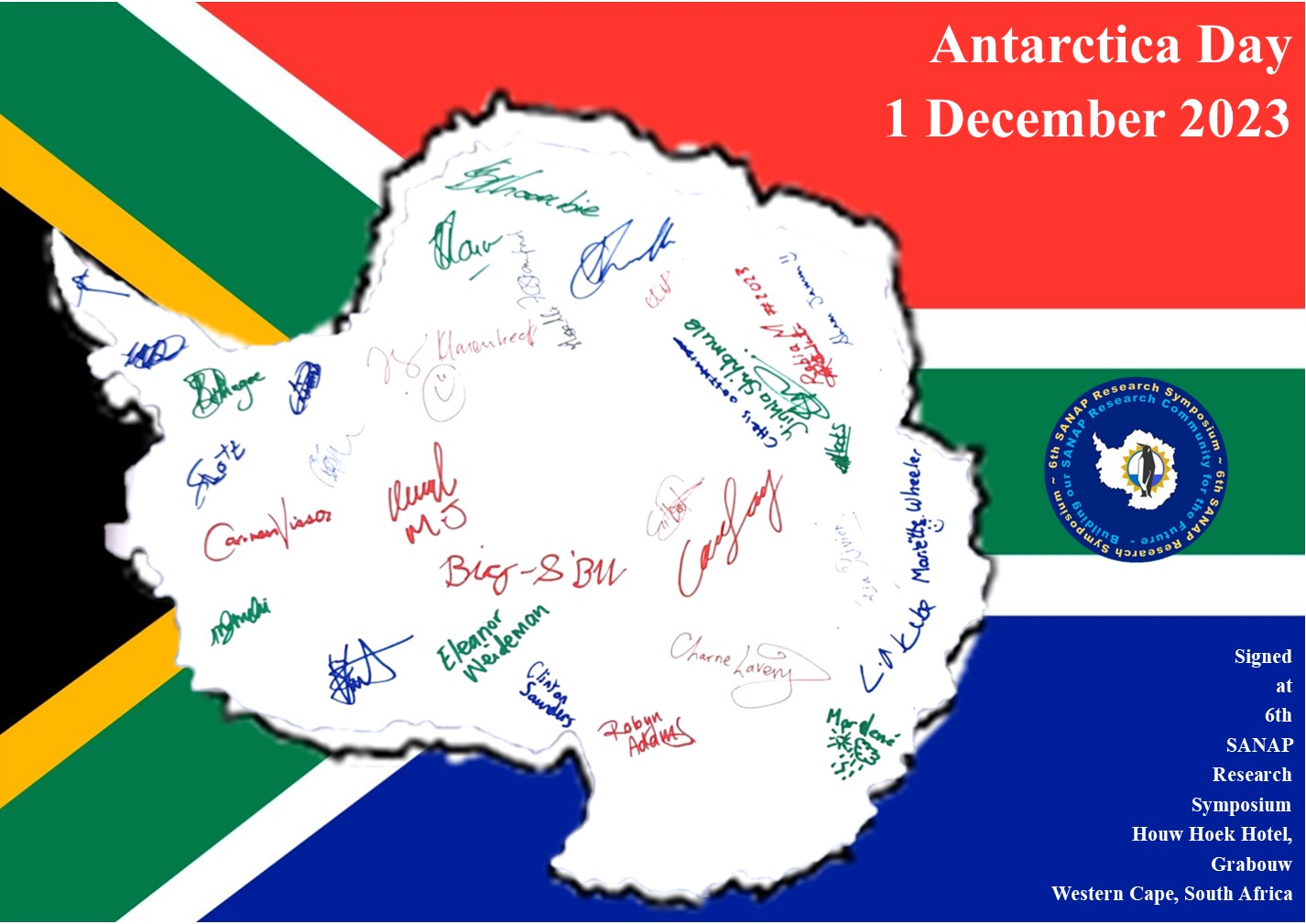
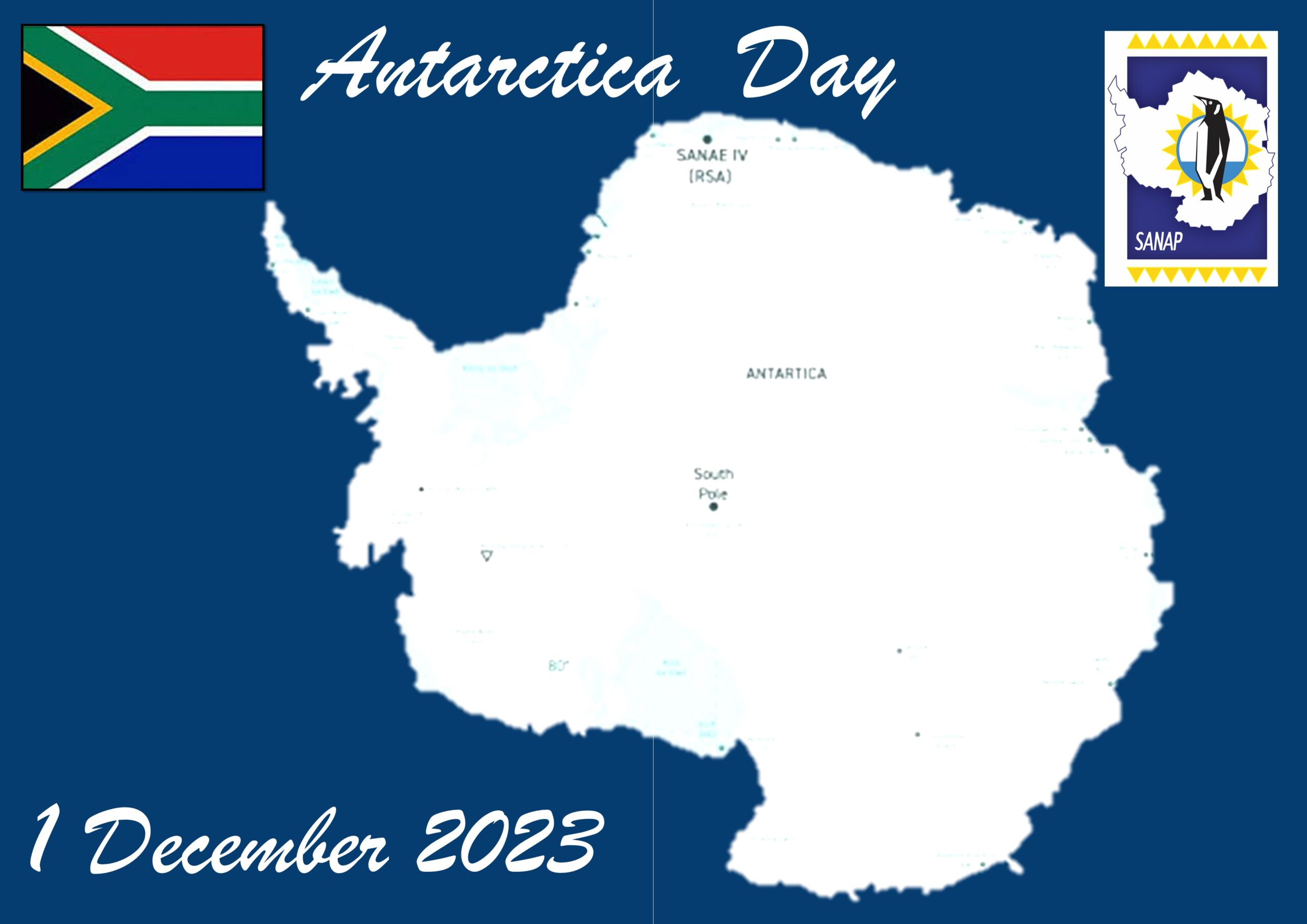 It was the first time that so many South African polar researchers were together on the 1st December on International Antarctic Day and a special Antarctic Breakfast took place to commemorate this International Day. A map of Antarctica, was signed and a cake was provided to celebrate the occasion.
It was the first time that so many South African polar researchers were together on the 1st December on International Antarctic Day and a special Antarctic Breakfast took place to commemorate this International Day. A map of Antarctica, was signed and a cake was provided to celebrate the occasion.
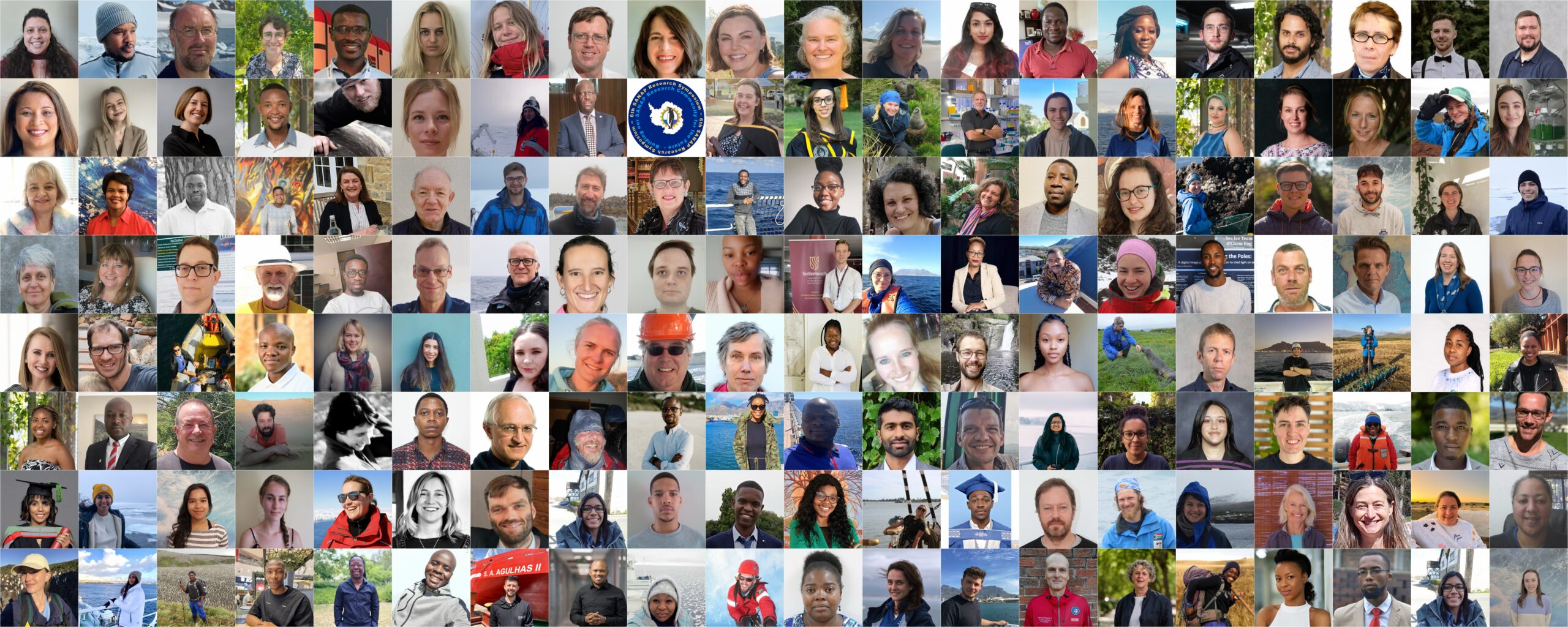 The organising committee would like to thank all participants and attendees for making the 6th SANAP symposium a success and achieving its aim in building a SANAP research Community for the future. We are looking forward to the next Symposium in Kruger National Park in 2025 that will be hosted by a consortium of University of Johannesburg, Fort Hare University and the University of the Free State.
The organising committee would like to thank all participants and attendees for making the 6th SANAP symposium a success and achieving its aim in building a SANAP research Community for the future. We are looking forward to the next Symposium in Kruger National Park in 2025 that will be hosted by a consortium of University of Johannesburg, Fort Hare University and the University of the Free State.
Comment by an ECR: “This was my very first SANAP symposium and it was absolutely incredible! Job well done to all those who assisted in organizing the event. Although it was a jam-packed week, the sessions were extremely interesting and well organized. The location was a perfect venue choice for this kind of event – especially for people to mingle, engage with one another and building strong relationships as well as for making connections for potential research collaborations. I am really impressed with the big focus that this symposium had on Early Career Researchers – I think it is a great way of getting the younger professionals more involved and to network! Congrats on pulling off a very successful SANAP Symposium!”
More will follow of the symposium and sessions that took place with a photos.
A huge thank you to the NRF for making the symposium possible and to all our suppliers and sponsors; Houw Hoek Hotel, Neelsie Travel Bureau, Adjuvo enterprises, Trilogy Audio Services, Crazylicous Cookies.
Featured Image: David Hedding
Image of signatures on Antarctica map : Anche Louw
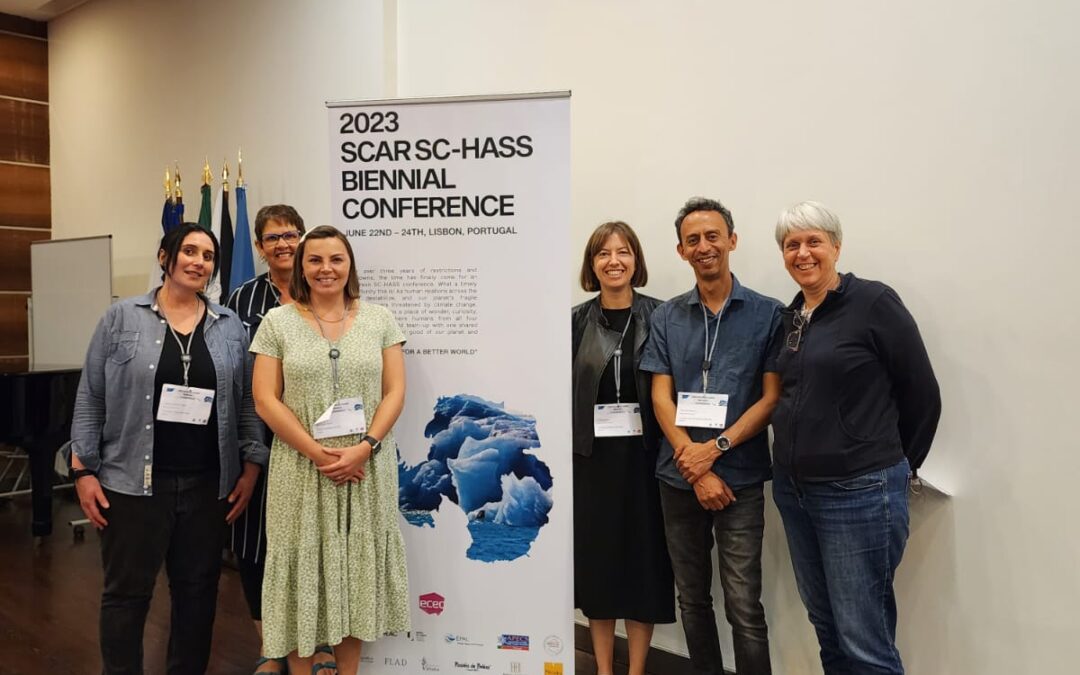
by Ria Olivier | Aug 23, 2023 | SANAP, SCAR, Uncategorised
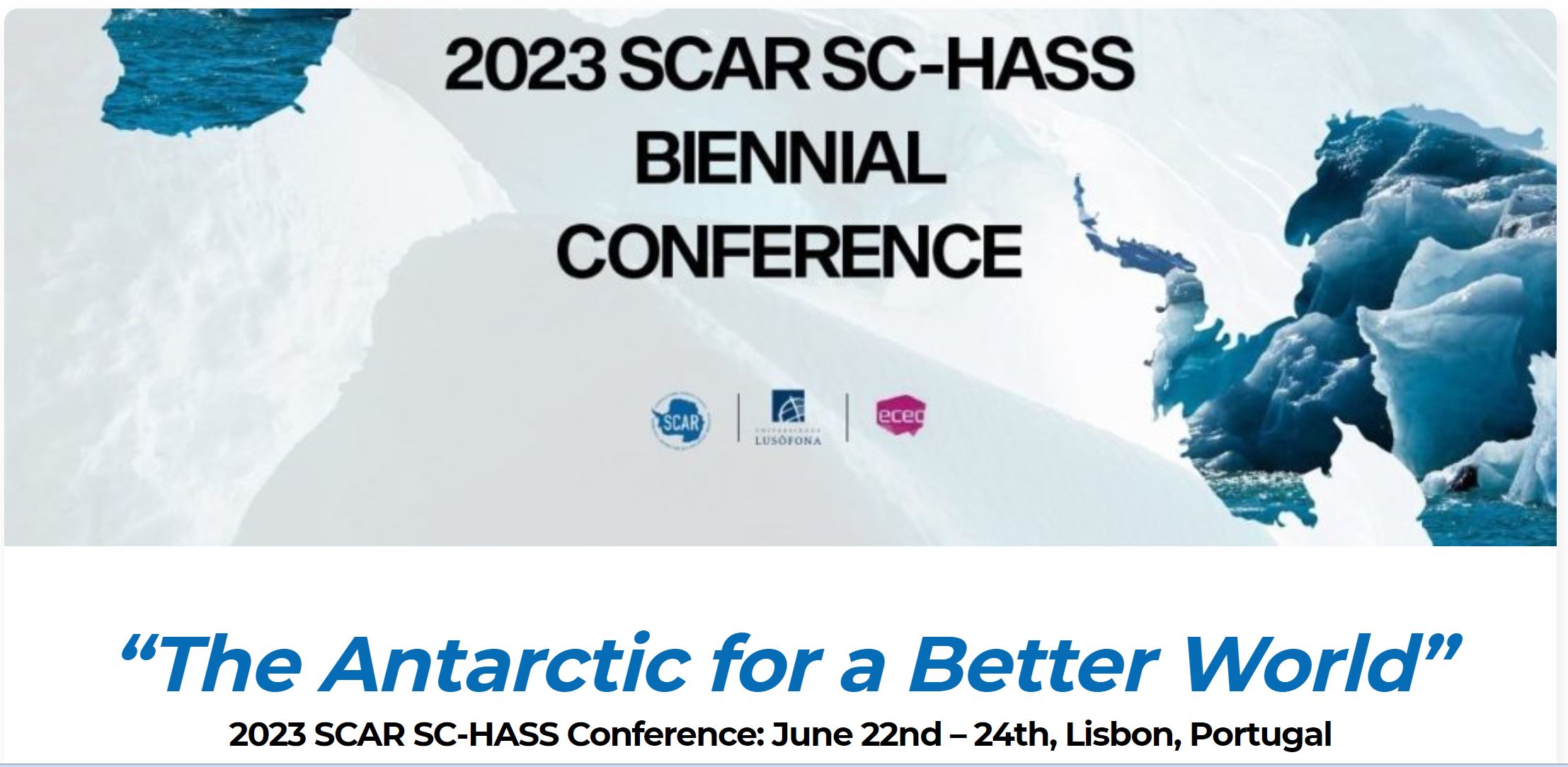
The 2023 SCAR SC-HASS Conference: with the theme: “The Antarctic for a Better World” hosted by Universidade Lusófona took place in June, Lisbon, Portugal. There were more than 150 participants from all over the world and were welcomed with a Portuguese delicacy Pasties de Nata. The annual business meeting of SCHASS took place at the end of the conference where it was announced that next conference will be a hybrid and in 2027 the SCHASS conference will be in-person.
This year’s SC-HASS Conference was, as always, a wonderful experience. It was an honour to represent the newly established South African Polar Research Infrastructure, presenting on its prospects on connecting the society of South Africa with research of global interest, Marine and Antarctic research. Particularly valuable to me was the discussions and new connections made within the Public Engagement on Antarctic Research sessions we had during the conference and sharing ideas with communicators and researchers within various fields (social sciences, history, journalism, science communication, art, tourism), all with the focus on “science for the benefit of society”. I look forward continuing various discussions which initiated through this in-person conference – Anche Louw (Digital Marketing and Communications Manager of SAPRI, Co-Investigator of the Antarctic Legacy of South Africa project, a SA representative on the Standing Committee on Humanities and Social Sciences (SCHASS) at SCAR and on the SA National Committee for SCAR and a member of the action group for Public Engagement with Antarctic Research (PEAR) at SCAR).
It was wonderful to meet up in person again with the Antarctic HASS community, after the last in-person meeting in Ushuaia, Argentina, in 2019. Since then, many of us have met and collaborated online, but there is something special and productive about being able to interact face to face. The talks were diverse and informative, we received excellent feedback on our papers, and made numerous contacts for future collaborative research – Charne Lavery (Senior Lecturer in the Department of English at the University of Pretoria, Co-director of the Oceanic Humanities for the Global South project, a South African Humanities and Social Sciences delegate to the international Scientific Committee on Antarctic Research (SCAR) and PI on a South African National Research Foundation’s Antarctic Programme (SANAP) project: ‘Antarctica, Africa and the Arts’).
This was the best conference I have attended. Everyone was friendly and generous with their feedback. The conference was structured so that there was a tea or lunch after each session, facilitating continuing conversations outside of the presentation time. I thoroughly enjoyed it – Jean Brundrit (Teaches photography, researches and makes art in the Fine Art Department at the University of Cape Town).
I was delighted to participate in the Antarctic Hass conference this year. The range of intellectual interest I encountered there went well beyond the limits of my own literary investments in the region, and in ways that I found both productive and rewarding. I found the variety of approaches to how the Antarctic has and might be thought particularly interesting, and I was pleasantly surprised by how Antarctic Scholarship seems especially able to accommodate interdisciplinary modes of academic inquiry – Simon van Schalkwyk (Senior Lecturer in the Department of English Studies at the School for Literature Language and Media at the University of the Witwatersrand).
I’m new to this field and was a bit hesitant about presenting work that is still very much ‘in progress’ but am so glad that I did! The conference was an amazing opportunity to meet the Antarctic HASS community and to share ideas, contacts and resources – Adrienne van Eeden-Wharton (Postdoctoral fellow at the University of Pretoria on the Antarctica, Africa and the Arts project (NRF-SANAP funded project).
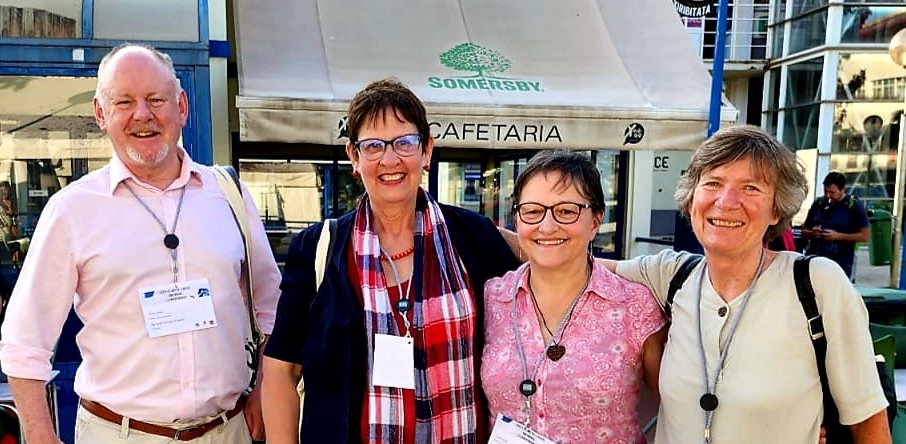 The COVID pandemic change the conference environment. Since the last SCHASS in 2019 in Argentina the Social Sciences and Humanities community had online meetings and discussions and activities within this discipline carried on. Attending an in-person meeting made me once again realise that we are human beings, and we need human contact. It was great to meet with colleagues that I have become friends over the past years, it felt like a family reunion. The great networking that takes place outside of the presentations cannot be substitute by online symposia and conferences. It is great to be part of this standing committee of SCAR and its activities. The chance to further data management in the social sciences and humanities is always important – Ria Olivier (Principal Investigator and digital archivist of Antarctic Legacy of South Africa (ALSA) based at Stellenbosch University, member and SA representative of Standing Committees on Humanities and Social Science in Antarctica (SCHASS) and Antarctic Data Management (SCADM), and on the SA National Committee for SCAR).
The COVID pandemic change the conference environment. Since the last SCHASS in 2019 in Argentina the Social Sciences and Humanities community had online meetings and discussions and activities within this discipline carried on. Attending an in-person meeting made me once again realise that we are human beings, and we need human contact. It was great to meet with colleagues that I have become friends over the past years, it felt like a family reunion. The great networking that takes place outside of the presentations cannot be substitute by online symposia and conferences. It is great to be part of this standing committee of SCAR and its activities. The chance to further data management in the social sciences and humanities is always important – Ria Olivier (Principal Investigator and digital archivist of Antarctic Legacy of South Africa (ALSA) based at Stellenbosch University, member and SA representative of Standing Committees on Humanities and Social Science in Antarctica (SCHASS) and Antarctic Data Management (SCADM), and on the SA National Committee for SCAR).
 Conference closing ceremony: a performance by a university student musical band. We thank the organisers that delegates part of the SA National Antarctic Programme could attend this conference.
Conference closing ceremony: a performance by a university student musical band. We thank the organisers that delegates part of the SA National Antarctic Programme could attend this conference.
Photo Credit: Pasties de Nata and Musical band – SCHASS
Ria Olivier, Antarctic Legacy of South Africa, 23 August 2023
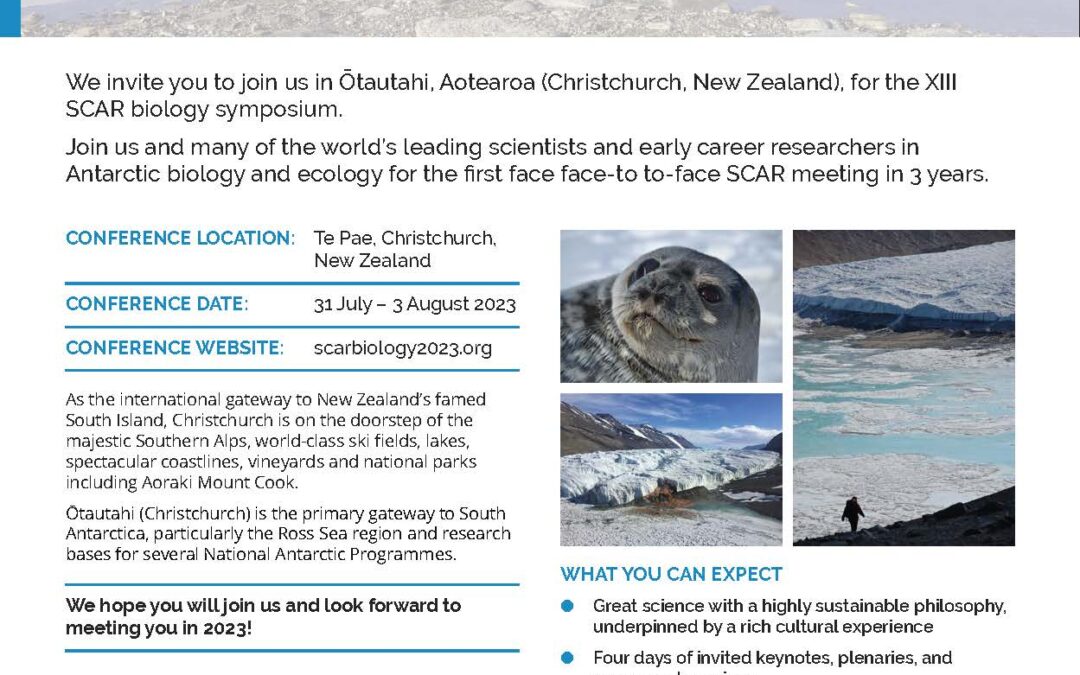
by Ria Olivier | Oct 18, 2022 | Announcement, Antarctica, Important Dates, Meetings, News, Research, SANAP, SCAR, Science, Southern Ocean
This is the first announcement for the Scientific Committee on Antarctic Research (SCAR) Biology Symposium 2023 in New Zealand.
Conference Website
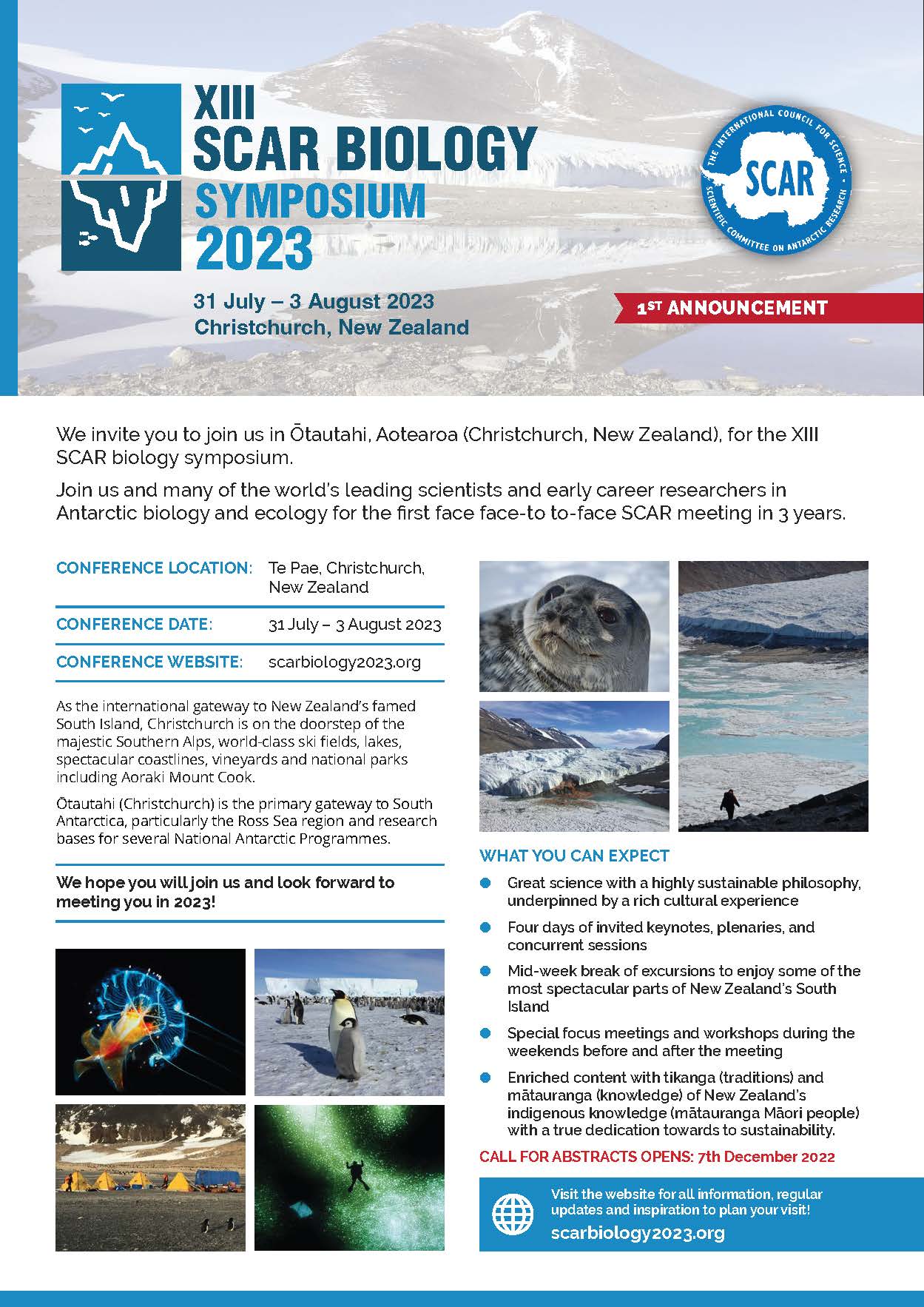
Will you be attending/presenting a paper? Let ALSA know!
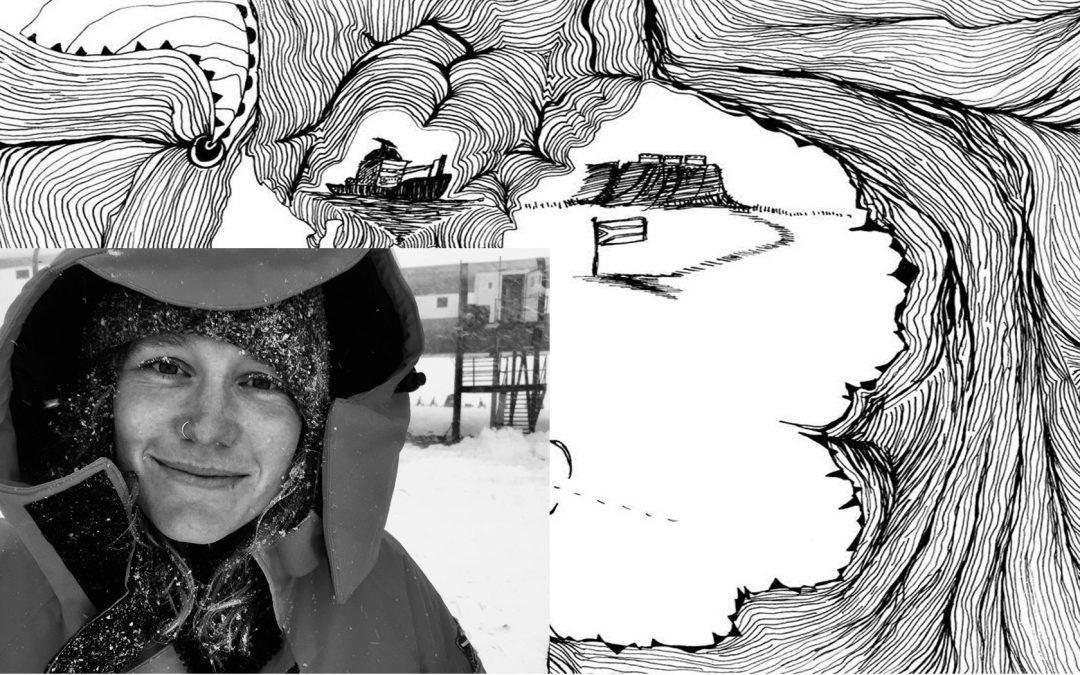
by Ria Olivier | Sep 16, 2022 | Announcement, Antarctica, SCAR
 The XXXVII SCAR Delegates Meeting took place in Goa, India, during the first week of September. Bettine van Vuuren and Tracy Klarenbeek represented South Africa during this meeting.
The XXXVII SCAR Delegates Meeting took place in Goa, India, during the first week of September. Bettine van Vuuren and Tracy Klarenbeek represented South Africa during this meeting.


To represent a country, the Delegates need to prepare themselves in advance to be able to give feedback and to make decisions during these meetings. Bettine led the delegation for South Africa and gathered the necessary input from the SA National Committee for SCAR.
During the meeting, Prof Steven Chown of Monash University, previously from South Africa, was awarded Honorary Membership to SCAR, and we would like to congratulate him on this award.
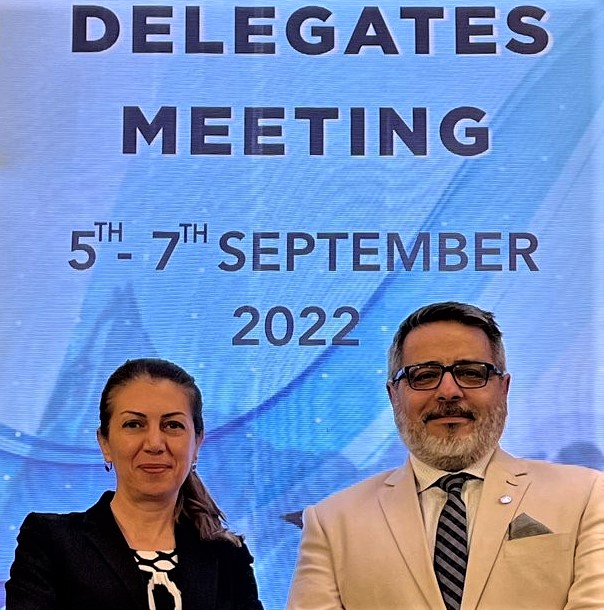 Two new SCAR Vice Presidents were appointed during this meeting: Prof Burcu Ozsoy from Turkey and Dr Marcelo Leppe from Chile
Two new SCAR Vice Presidents were appointed during this meeting: Prof Burcu Ozsoy from Turkey and Dr Marcelo Leppe from Chile
Future events were announced, and these will be updated on the SANAP website.
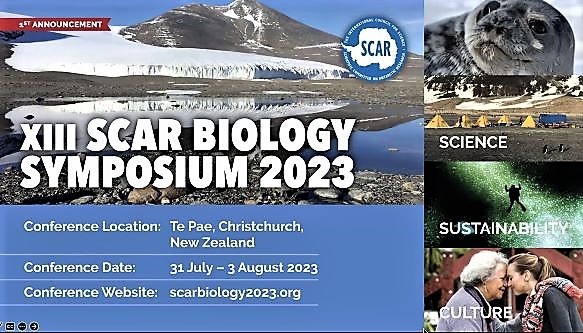 SCAR Biology Symposium 31 July – 3 August 2023 – Christchurch, New Zealand
SCAR Biology Symposium 31 July – 3 August 2023 – Christchurch, New Zealand
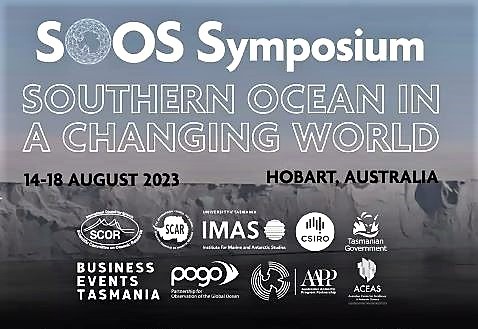 The Southern Ocean Observing System (SOOS) Symposium – 14 – 18 August 2023 – Hobart, Australia
The Southern Ocean Observing System (SOOS) Symposium – 14 – 18 August 2023 – Hobart, Australia
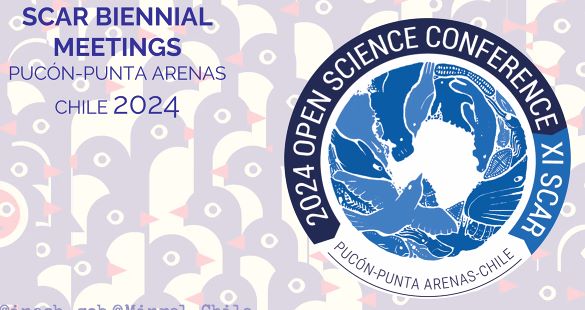 2024 SCAR Open Science Conference 19 – 23 August 2024 – Pucon, Chile and SCAR Delegates meeting 26 – 29 August 2024 – Punta Arenas, Chile
2024 SCAR Open Science Conference 19 – 23 August 2024 – Pucon, Chile and SCAR Delegates meeting 26 – 29 August 2024 – Punta Arenas, Chile
2026 SCAR Open Science Conference – Norway


 In today’s rapidly evolving scientific landscape, research conferences serve as vital hubs for knowledge exchange, fostering innovation, and building collaborations across disciplines. The recent SCAR conference held in Pucon, Chile during August brought together leading scholars and emerging researchers from around the globe. The event was packed with groundbreaking presentations, hands-on workshops, and insightful discussions that highlighted the latest trends shaping the future of research.
In today’s rapidly evolving scientific landscape, research conferences serve as vital hubs for knowledge exchange, fostering innovation, and building collaborations across disciplines. The recent SCAR conference held in Pucon, Chile during August brought together leading scholars and emerging researchers from around the globe. The event was packed with groundbreaking presentations, hands-on workshops, and insightful discussions that highlighted the latest trends shaping the future of research. Here’s a closer look at the highlights and takeaways from this year’s conference. (above: Session on sub-Antarctic was an all South African session)
Here’s a closer look at the highlights and takeaways from this year’s conference. (above: Session on sub-Antarctic was an all South African session) Groundbreaking Research Papers. One of the conference’s core components was the presentation by researchers during the different parallel sessions. Each session provided opportunity for Q&A, enabling in-depth conversations between the audience and the researchers, fostering a true sense of intellectual community. South African researchers presented during these sessions. (above a few presenters captured during their present picture above: Session on sub-Antarctic was an all South African sessions)
Groundbreaking Research Papers. One of the conference’s core components was the presentation by researchers during the different parallel sessions. Each session provided opportunity for Q&A, enabling in-depth conversations between the audience and the researchers, fostering a true sense of intellectual community. South African researchers presented during these sessions. (above a few presenters captured during their present picture above: Session on sub-Antarctic was an all South African sessions) Workshops. Experts from organizations guided participants through various disciplines. Ria Olivier held a workshop on publications in the Antarctica Community and resources on data management
Workshops. Experts from organizations guided participants through various disciplines. Ria Olivier held a workshop on publications in the Antarctica Community and resources on data management Poster Sessions: Spotlight on Research in addition to formal presentations, these sessions provided a platform for researchers to showcase their work.
Poster Sessions: Spotlight on Research in addition to formal presentations, these sessions provided a platform for researchers to showcase their work. Networking and Collaboration. Beyond the formal sessions, the networking opportunities were an integral part of the conference. Through social events, coffee breaks, and an industry exhibition, participants had the chance to connect with peers, potential collaborators, and mentors.
Networking and Collaboration. Beyond the formal sessions, the networking opportunities were an integral part of the conference. Through social events, coffee breaks, and an industry exhibition, participants had the chance to connect with peers, potential collaborators, and mentors.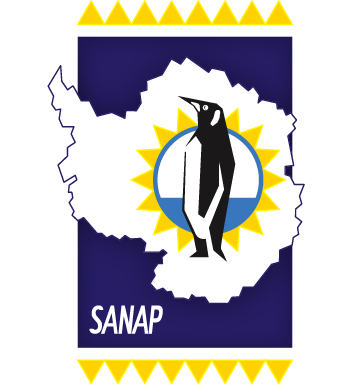
 Well done to all that represented South Africa at
Well done to all that represented South Africa at 


 Over a period of 5 days 172 people participate in the
Over a period of 5 days 172 people participate in the  The purpose of the symposium was to facilitate the free exchange of scientific information within SANAP research. In the
The purpose of the symposium was to facilitate the free exchange of scientific information within SANAP research. In the 
 It was the first time that so many South African polar researchers were together on the 1st December on International Antarctic Day and a special Antarctic Breakfast took place to commemorate this International Day. A map of Antarctica, was signed and a cake was provided to celebrate the occasion.
It was the first time that so many South African polar researchers were together on the 1st December on International Antarctic Day and a special Antarctic Breakfast took place to commemorate this International Day. A map of Antarctica, was signed and a cake was provided to celebrate the occasion. The organising committee would like to thank all participants and attendees for making the 6th SANAP symposium a success and achieving its aim in building a SANAP research Community for the future. We are looking forward to the next Symposium in Kruger National Park in 2025 that will be hosted by a consortium of University of Johannesburg, Fort Hare University and the University of the Free State.
The organising committee would like to thank all participants and attendees for making the 6th SANAP symposium a success and achieving its aim in building a SANAP research Community for the future. We are looking forward to the next Symposium in Kruger National Park in 2025 that will be hosted by a consortium of University of Johannesburg, Fort Hare University and the University of the Free State.

 The COVID pandemic change the conference environment. Since the last SCHASS in 2019 in Argentina the Social Sciences and Humanities community had online meetings and discussions and activities within this discipline carried on. Attending an in-person meeting made me once again realise that we are human beings, and we need human contact. It was great to meet with colleagues that I have become friends over the past years, it felt like a family reunion. The great networking that takes place outside of the presentations cannot be substitute by online symposia and conferences. It is great to be part of this standing committee of SCAR and its activities. The chance to further data management in the social sciences and humanities is always important – Ria Olivier (Principal Investigator and digital archivist of Antarctic Legacy of South Africa (
The COVID pandemic change the conference environment. Since the last SCHASS in 2019 in Argentina the Social Sciences and Humanities community had online meetings and discussions and activities within this discipline carried on. Attending an in-person meeting made me once again realise that we are human beings, and we need human contact. It was great to meet with colleagues that I have become friends over the past years, it felt like a family reunion. The great networking that takes place outside of the presentations cannot be substitute by online symposia and conferences. It is great to be part of this standing committee of SCAR and its activities. The chance to further data management in the social sciences and humanities is always important – Ria Olivier (Principal Investigator and digital archivist of Antarctic Legacy of South Africa ( Conference closing ceremony: a performance by a university student musical band. We thank the organisers that delegates part of the SA National Antarctic Programme could attend this conference.
Conference closing ceremony: a performance by a university student musical band. We thank the organisers that delegates part of the SA National Antarctic Programme could attend this conference.


 The
The 

 Two new SCAR Vice Presidents were appointed during this meeting: Prof Burcu Ozsoy from Turkey and Dr Marcelo Leppe from Chile
Two new SCAR Vice Presidents were appointed during this meeting: Prof Burcu Ozsoy from Turkey and Dr Marcelo Leppe from Chile
 The
The  2024 SCAR Open Science Conference 19 – 23 August 2024 – Pucon, Chile and SCAR Delegates meeting 26 – 29 August 2024 – Punta Arenas, Chile
2024 SCAR Open Science Conference 19 – 23 August 2024 – Pucon, Chile and SCAR Delegates meeting 26 – 29 August 2024 – Punta Arenas, Chile
